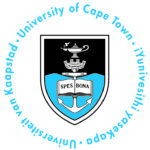

Five years ago, chemical engineering carried out a complete undergraduate curriculum change at University of Cape Town. In the new curriculum it was envisaged to develop students chemical process analysis and understanding skills. Having 600 Aspen Plus licenses was out of the question.The faculty decided to use COCO and tools that link via CAPE-OPEN. The university developed a three-year programme that is currently being taught to students from first year to 3rd year.
Once first year students have been taught the basics of mass and energy balances, the curriculum gives them basic skills in the use of COCO and follow it up with a project. By 3rd year, once the students have been taught all the chemical engineering theory, they are able to carry out a complex design (e.g. Luybens styrene plant) using the COCO reactor and Chemsep modules.
A condensed version of these course modules was presented at the University of Eduardo Mondlane, Maputo, Mozambique to chemical engineering MSc students.
The talk outlines the structure of the course and the challenges that were faced. More so the talk highlights the success in both learning and understanding that students have gained in becoming more process development ready.
